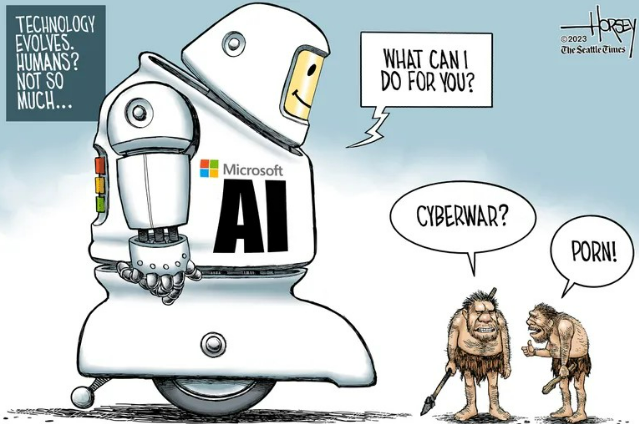Give me a reason that these words you are reading with the help of retina as an inverted image which is transcribed by your brain into certain pattern producing a sequence of responses involving emotion and logic is not written by ChatGPT? I mean, I can be that random person, who wanted to submit an article out of boredom, with the river of ideas running dry and mind craving immediate dopamine deposit. I might have searched under ChatGPT, asking “Write a convincing article about ChatGPT involving metaphors from the perspective of a man who seems scientifically inclined and well-read in philosophy within dire need of submitting of an article.”
Well, if you are convinced that this can’t be so, because an AI would never be able to as unpredictable and unstructured, you are wrong. In this article- which I am writing to console all those human spirits who are worried about AI’s takeover on human jobs, I want to convey that AI will step over your neural connections with its processing and data collection. The arguments that one comes with while defending the human ability are being explored below. This is not my crude attempt to undermine the capabilities of a human, but a deep analysis into what we can be capable of with the help of AI. If critical thinking- which involves accessing things through different perspectives and matching the results with previous experiments, is the mark of one of the best lawyers, imagine what would happen to him if he were work along with an AI, that would provide him with the most potent data of all the cases and their results. The moment we consider this as a competition is the moment we lose. The tool and technology we build about are never to undermine our intelligence, but to enhance our daily being. AI is the best one so far, especially ChatGPT, which I will be referring to as AI in some places.
It's time now, for the introduction of the valiant ChatGPT. Before moving on with my lousy words, why not ask the AI itself?
Question: Give a brief history of yourself.
I am ChatGPT, a large language model trained by OpenAI based on the GPT-3.5 architecture. I was first introduced by OpenAI in June 2020 and since then, I have been used for various natural language processing tasks, including language translation, sentiment analysis, and text generation.
As a language model, I was trained on a large corpus of text data, including books, articles, and other written material. My training data comes from various sources, including Wikipedia, Common Crawl, and other online repositories. My developers at OpenAI used cutting-edge machine learning algorithms to train me on this data, allowing me to learn patterns and structures in human language.
Since my introduction, I have become one of the most advanced language models in the world, capable of generating highly realistic and coherent text in a variety of contexts. My ability to understand and respond to natural language has made me a valuable tool for a wide range of applications, from chatbots and customer service systems to language translation and content generation.
As of my knowledge cutoff in September 2021, I continue to be developed and improved by the team at OpenAI, and my capabilities are expanding all the time.
The Creativity Argument
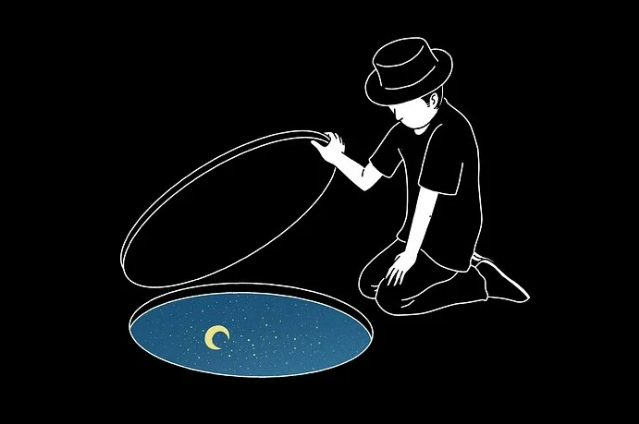
Image from Pixaby
“Creativity is intelligence having fun!” - Albert Einstein
The water we drink can be a state-shifting solid that chooses to change into liquid once under human contact! The sky can be the stomach’s inner layer of a giant and we are living inside his stomach floating aimlessly, only to get flushed into a black hole once he tries to shit! The frogs are humans under curse! The theory of relativity is just a conspiracy to hide the secrets of time travel and the dreams are our true selves trying to warm us about the world we live in! etc etc etc are some of the things which one might think can’t be thought out by ChatGPT. Naïve it is, when we say that pure creativity is product of the human soul that can feel things under different circumstances and can rewire the experiences from extreme ends. Creativity is a special word, the word that loses its profundity once we try to mimic its inherent meaning. What I have did above with those weird theories is nothing but picturize the unacceptable or unthought-of things- that are not true nor false in the first place, is to arrange the words in an order. Here’s my argument concerning AI’s creativity. If one knows grammar, has collection of millions of words and the ability to make sense of a sentence- doesn’t matter the intent and its implementation, doesn’t it make him the stalwart of producing ideas through words. The processing of my mind is so narrow and frivolous compared to an AI, that I don’t even have an iota of its reach- when it comes to concepts and experiences that has been put in by millions of humans. Creativity concerned with writing is nothing but a frivolous wordplay which AI knows more than any man on earth. Our thoughts have no meaning unless expressed in words, whereas an AI has no thoughts and adherence of morality and ethics in framing things in can.
Sure enough, one might say that the ChatGPT needs a guide to bring out all the crazy stuffs, right? Well, you must remember that this question is limited by the time we are living in. Of course, there are no instances in the world where an AI has pierced its magic waves into our mind to read our thoughts and crowded the screen with answers we never asked with our mouth or buttons. It will be like a science fiction story we would love to listen from our grandparents Infront of fire during cozy winter night. When we look at the world around us today, isn’t most of the luxury we can’t live without, the product of fiction which appeared as an idea from a random brain? The stories we adore and connect to are limited to the author’s imagination and concreteness- especially the ones involving the time travel and utopian/dystopian futures. Thirty years ago, none would have thought that we need not walk to the theaters to enjoy a new movie, none would have dared venture on an idea of a cell phone that can navigate us through the new city without flaws and not even the geniuses could come out of a book’s story before speaking of interplanetary travel. We have advanced more than we think and estimate. We lost sight of the progress confronted with our flaws and desires. The essence of time, which is so sneaky and fast pacing, in our busy lives, has fooled us into being adept and accept things without questioning the reality of its origin and its profound impact to our daily lives. If you place a washing machine inside the home of a rural woman working on daily wages, she will best explain its importance than the urban women who has a maid to take care of things.
And why would there be a time where an AI need no guide is explained in the Automation argument.
The Automation Argument
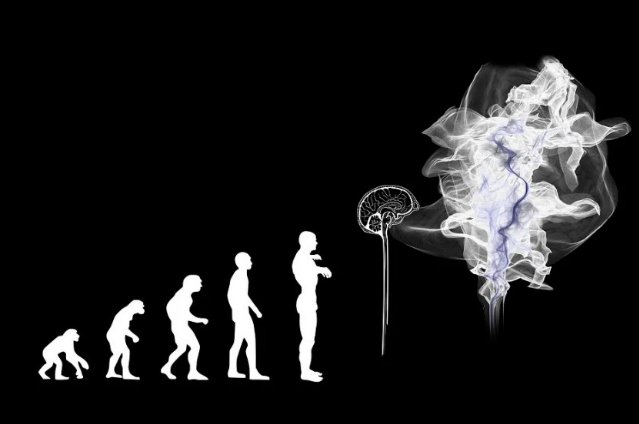
Image from Pixaby
"The real danger is not that computers will begin to think like men, but that men will begin to think like computers." - Sydney J. Harris
Coming back to the point, the idea of regulating the AI is in our hands, for now. We are in need of things we know we need, but once our brain de-accelerates and its motivation fades to give a job to an AI to simulate a result, we would ask the AI itself to begin and end a task on its own. A reasoning man might ask, why would we do that? Isn’t it insane and dangerous to give power to a piece of code? My counter is simple, why wouldn’t we do that?
- According to a report by McKinsey, automation has the potential to increase global productivity by up to 1.4% annually, which translates to a $1.2 trillion boost to the global economy.
- The survey by UiPath found that the top benefits of automation for businesses are improved accuracy (92%), cost savings (59%), and increased productivity (57%).
If we can cut off five seconds of button clicking, it will amount to weeks of saving when calculated in the grand scale of years that follow.
The purpose of our brain has never been to think things through. The brain wants to not to think at all. Why do we feel a sudden fear of darkness? Why does our adrenaline level shoot up when we see a snake under our legs? Why does our eyes dilate, and heartbeat increase when interacting with someone attractive of opposite sex (for straight genders)? Its evolution trying to make us an animal of routine or instincts. If we don’t react the way the brain crafted us, we would be at a loss of our lives and there would be no progeny from our end. The routine is what the brain wants. It wants no conscious accidents to happen. The fear of change is in all of us and the reason dates to brain trying to make us fit to reproduce while taking no risk. The smell of similar food, the adjustment to the mineral-less water and the repetitive job we do for our livelihood is best precaution the brain could ever inflict.
If automation is deeply embedded in our DNA, why not extend it on inorganic things we possess? So instead of asking ourselves to sweep the floor, we hired a worker and now a robot. Instead of filling the forms to get a new SIM card, we have a machine with world wide web. So, what’s stopping us from asking the AI to take an input by itself and doing its job as it always does? [1] Neuralink is what’s trending when I talk of full-fledged automation. What if the computer can process our thoughts and move the pointer by itself on the screen? Sounds over-ambitious, but fear that it is already in production and by the time your grandchildren reach your age, they might play car games but instead of using joystick, they would employ the act of will.
The Subjectivity Argument
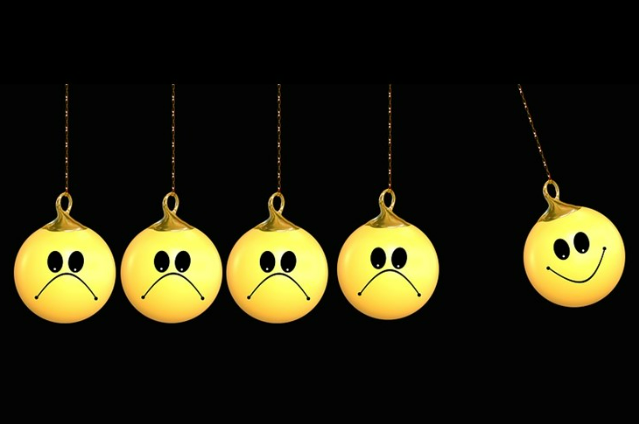
Image from Pixaby
"We don't just see the world, we create it through our perceptions and experiences." - David Eagleman
You might have read the story of [4] “The Bicentennial Man” by Issac Asimov, the man who termed the word “Robotics” and laid foundations to the skyscraper of AI trying to imitate humans to the immediate cellular level. It’s a story of a robot, which has gifted impulses due to some unknown defect in its positronic brain (which can be co-related with the genetic mutation) goes on shedding its skin- both literally and metaphorically, to become a human. The extent of understanding it tries to gain about being a human is explained as if we are all programmable in real sense. The story is too simple and mind-bending. The author too, understanding the insignificance of a human life marks us under no special formula to grant the robot the recognition as a human in the end. It only takes some centuries for a robot to decode the millions of years of evolution through extensive study. If this were the case, what remains of human subjectivity, free will and soul? They might soon join their spot beside mythological creatures breathing fire to kill a man with magnetic armor imprinted to his skin.
If you ask an AI “What do you think of Hitler?” It would give you an answer that is mostly fact-accurate after going through the data it was fed on. There would no around the bush answers concerning personal opinions and remarks. When you ask the same question to a human who is well read in history, instead of beginning with facts regarding Hitler’s birth, his age when he joined army, his primary job, and other notable things, he would begin by saying how ruthless a man can be when adjoined with immense power. This is the thing that separates a man from an AI, and yet again…. for now. Human are endowed with subjective experience where we gain something of an abstract idea called wisdom which we use to differentiate things as good and bad. Wisdom is a tool for us to make a better version of ourselves, where an AI is bound to make nor sense neither good impression by being a data reader as its own. The wisdom of an AI finally rests under our hands, for now.
The subjective dilemma can be concluded into fewer sentences than I originally thought. If our decision-making ability can be read with super computers, it can be imitated, if our molecular biology is disclosed, it can be reconstructed, what remains of us is just an argument stating that we emerged from the mating of another human beings. This argument is too strong and eccentric, just for now.
The Consciousness argument
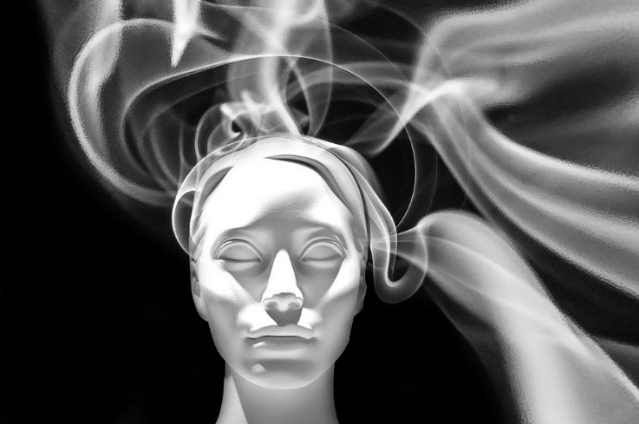
Image from Pixabay
"Consciousness is not just another brain process, but is a phenomenon that arises from the interactions between many different brain regions." - Antonio Damasio
When I say to people that I am agnostic, they suddenly imagine myself as an atheist and begin to argue prudishly. While I stand on a fence between atheism and theism, I have enough points to shoot on both, but every time I involve in a heated debate, I am asked, “If you want evidence of God, show me air first?”. It is the first sign for me to escape from the conversation which eventually leads to hatred instead of a fair conclusion involving ‘lack-of-evidence’ or ‘the bridge of ignorance’. Only once in my life did I receive an argument that said, “I will show you evidence of God, if you show me the evidence of Consciousness,” I was literally stunned and was shut down from growing front or back of that sentence. One of the crazy theories regarding consciousness- in abstract, is that our consciousness can be imagined as an intangible pollution formed above brain like clouds hovering in the atmosphere, let out by a brain after its mental processing through age. Well, it has every possibility of becoming false that true, but the fact remains that we couldn’t conclude what consciousness is until now. This idea is being exploited by all the gurus who claim to have gone to other dimensions through severe process. Again, there is no denying until disproven, but taking things as truth without evidence is called faith, which can be both hopeful and dangerous.
Before Galileo took a sober walk to his backyard holding a telescope to observe the unexplored, all our immature ideas regarding the world above head were framed and spread by dominant religions across respective regions. The church gave stories regarding the creation of the universe, the Hinduism was crowded with characters assigned in creating, maintaining, and destroying the universe and the Buddhist’s were still beginning at the corners bringing down whole issue of mind and ideas to material reality. Once the scientific revolution began with the Europeans shifting their proposition that the Earth was center of the universe, since then it’s been nearly 500 to 600 years that has seen enough growth in science and technology whose evidence doesn’t end at one article. If we calculate the progress of our fundamental understanding of our surroundings in time scale, its 500 years of scientific pursuit comprised of empiricism against 12,000 years of wars, famine, plagues, blunt belief, and ignorance.
We know how to open an article on a random website and read its contents while sending our remarks as comments under it, but very little do we understand how the website works does, how does the device you are using to read this performs the task of connecting to the servers and finding the best match to the keywords you typed. The fundamentals are ignored as we experience the otherworldly flashes on our screen. To be frank, we need not know everything to survive too. Long gone are the days when our hunter gatherer ancestors must retain every possible information about the plants they are going to eat, the attitude of the animal they are going to hunt and the most likely weather they are going to face next day. While this trend of conscious ignorance remains, we are most like to lose our curiosity surrendering to entertainment and mental extasy. We can’t all be the generalists, and specialists are as stupid as an average man. To perform our attack on modern science, we are helpless if we pursue alone. We need someone who knows everything all the time, we want someone who is never tired of boredom and finally we require a companion who stands from beginning to end without giving up hope. Who else is there except an AI?
AI too is the result of scientific revolution we all take granted. If we have to understand the un-understandable, we need the impeccable genius. If we could decode our genomes with cooperation, if we could find a cure for cancer which once was indestructible, if we could create a weapon that could wipe out life forms from the face of earth, then we could, one day, find the mystery behind the so-called Consciousness. But one thing for sure, we can’t do it alone.
The AI’s silly existence.
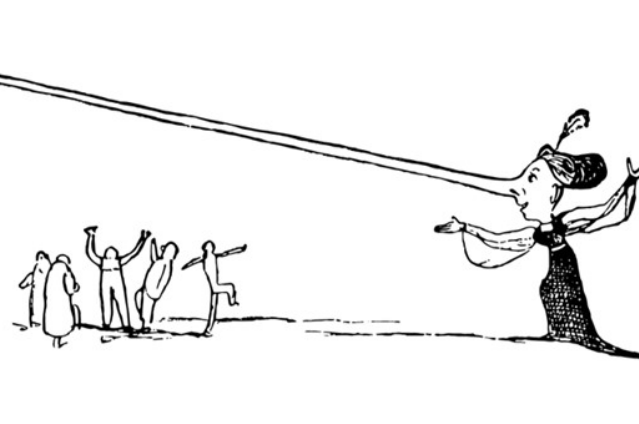
Image from Pixabay
"Artificial intelligence will be a powerful tool, but it is not the panacea that some people think it is. It will have limitations, and we need to be careful about how we use it. We cannot simply rely on machines to solve all of our problems. We need to use our own intelligence as well." – Vaclav Smil
Its easy for a layman to perceive an AI, as one of humanities greatest leap, the change that would bring paradigm shift in the way we work and live. AI is as good as it is, as I talked about our ignorance regarding fundamental things in the consciousness argument and the creativity argument, it’s easy to extend its implication and understand that it is not such a great feat of humanity at all. AI, which runs on a code, which is run using computer, which is the product of microchips, which is built by silicon, which is dug from earth, which is dug using electricity (where electricity is even used by computer), the electricity produced by burning fossil fuels, which are the fundamental constructs of human society, are ignored like bacteria’s in our gut.
The world was affluent without AI and could grow prosperous without AI, as long as our daily needs of food, electricity and entertainment is reached by the exploitation of fossil fuels. In his astounding book, [5] HOW THE WORLD REALLY WORKS, Vaclav Smil, one of the most adored authors with his sense making through stats, give four fundamental necessities that power and transform the modern world and surprisingly AI is not in the list. He states that without, Ammonia, Cement, Steel and Plastic, there would no role of AI to sit and stare us from the computer screen.
Conclusion:
So how to conclude this? Let me ask the ChatGPT to conclude after feeding this article. This is what it says;
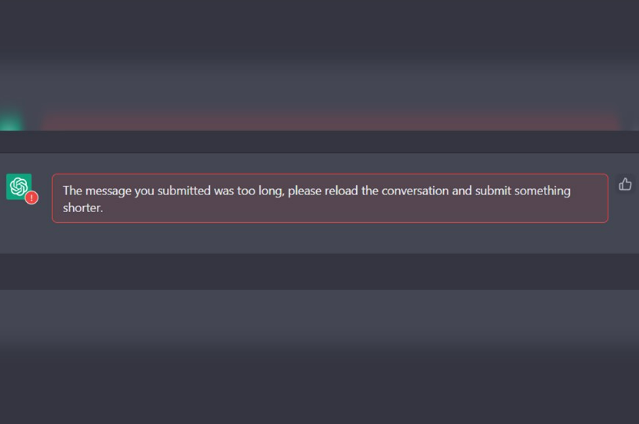
Now you know who’s the boss.
. . .
Sources:
- https://en.wikipedia.org
- McKinsey Global Institute. "A Future That Works: Automation, Employment, and Productivity." January 2017. Available online at: https://www.mckinsey.com
- UiPath. "The State of RPA Adoption." 2021. Available online at: https://www.uipath.com
- Asimov, Isaac. "The Bicentennial Man." The Magazine of Fantasy and Science Fiction, vol. 67, no. 4, Oct. 1984, pp. 42-56.
- Smil, Vaclav. "How the World Really Works: Economies, Demographics, Technology, and Environment". 2019, MIT Press.

